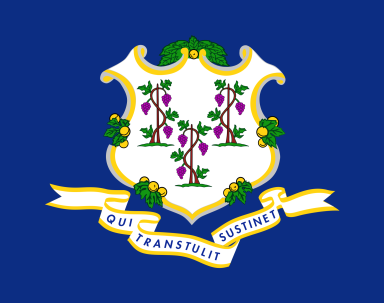According to data from the National Highway Traffic Safety Administration, Massachusetts recorded 582 motorcycle accidents in 2021, of which 287 resulted in the death of a motorcycle rider or driver attributed to drunk driving. The NHTSA report also found that, in the same year, 66 riders died in crashes despite wearing a helmet.
While drunk driving remains a significant concern, Massachusetts law firms identify lane changes, faulty road design, slippery conditions, speeding, and distracted driving as the most common causes of motorcycle accidents in the state. They also highlight potential injuries an individual may obtain from such crashes, including brain damage, broken limbs, internal injuries, road rash, and spinal cord damage.
Worcester, Boston, Fall River, New Bedford, and Springfield are recognized as the top five most dangerous areas for motorcycle riders in the state.
To address motorcycle accident issues, Massachusetts implements laws and regulations that restrict riders from practicing unsafe driving behaviors. This article will discuss the laws relevant to road safety and inform motorcycle operators about their legal rights and options for pursuing compensation in Massachusetts in the event of an accident.
Massachusetts Helmet Laws
In Massachusetts, helmets are mandatory for all motorcycle riders and passengers, regardless of age. The law requires helmets to meet specific federal standards, including those of the Department of Transportation, which are as follows:
According to the Massachusetts Registry of Motor Vehicles, the state’s helmet law is intended to protect motorcyclists from head injuries that can result in death or permanent disability. By enforcing helmet use, the state aims to promote safer riding practices and reduce the number of motorcycle-related fatalities and injuries on Massachusetts roads.
Massachusetts Motorcycle Licensing Requirements
To obtain a Massachusetts motorcycle license, individuals must first get a learner's permit, pass a knowledge test, present identification, and pay a fee. Permit holders can only operate during daylight hours, cannot carry passengers, and must complete a road test or the Massachusetts Rider Education Program to convert the permit to a license.
Minors under 18 must have a Junior Operator's License and meet additional requirements, including possessing a learner's permit for at least six months, maintaining a clean driving record, and completing driver's education and the Massachusetts Rider Education Program.
The table below shows some of the passenger restrictions and penalties for junior operators.
Massachusetts Maximum Sound Levels for Motorcycles
Massachusetts imposes limits on the noise levels produced by motorcycles as outlined in Chapter 90, Section 7U of Part I Title XIV of the Massachusetts General Laws.
According to this law, motorcycle drivers are prohibited from exceeding 86 decibels in speed zones exceeding 45 miles per hour. In speed zones of 45 miles per hour or less, motorcycle drivers should not exceed 82 decibels.
Moreover, drivers operating off-road motorcycles registered for non-highway use must adhere to a noise limit of 103 decibels, measured at a distance of 20 inches.
Failure to comply with the maximum sound levels for motorcycles in Massachusetts may be subject to enforcement and penalties.
Massachusetts Rules and Regulations for Periodic Motorcycle Inspection
As per the Massachusetts Vehicle Check program guidelines, an annual motorcycle inspection is required to ensure that the vehicles are qualified for the emission and safety standards. These inspections must be carried out at one of the 1,800 licensed inspection stations in Massachusetts, and vehicles that pass the tests will receive a new inspection sticker. If a motorcycle fails the inspection, a printed copy of the inspection report and a "reject" sticker will be provided.
According to 540 CMR 4, a visual check of the motorcycle is necessary before starting the inspection to identify if there is an interference with the proper aiming of the vehicle’s headlamps. Certified inspectors then examine motorcycle components, including brakes, steering and alignment, muffler and exhaust systems, windshield, horn, wheels and tires, and lighting devices. Other motorcycle parts, such as rear ends, body components, engines, batteries, frames, and fuel systems, are also inspected.
Massachusetts Motorcycle Speed Limits
In Massachusetts, motorcycle drivers must adhere to various speed limit laws and regulations depending on the road conditions. These include the following:
As stated in Chapter 89, Section 7C of Massachusetts laws, motorcycle drivers approaching highway maintenance vehicles, emergency vehicles, or recovery vehicles with flashing lights are required to change lanes to a non-adjacent lane to yield to these vehicles. If changing lanes is not possible, drivers must reduce their speed to a safe level.
According to Chapter 90, Section 17D of Massachusetts law regarding speed limits, drivers must adjust their speed in specific circumstances, which include the following:
When no posted speed limit exists on the road, drivers must adjust their speed based on special hazards present, such as pedestrians, weather and road conditions, and other vehicles.
While passing through school zones established by a city or town, drivers must adhere to the designated speed limit.
When driving on highways outside densely populated or business areas, drivers must follow the speed limits set for those areas.
When passing through active construction zones, whether managed by government entities or private companies, drivers must adjust their speed accordingly.
It is essential for motorcycle drivers in Massachusetts to be aware of and comply with these speed limit regulations to ensure their safety and the safety of others on the road.
Massachusetts Motorcycle Insurance Requirements
To register and drive a vehicle in Massachusetts, state law mandates drivers and owners of motor vehicles, including motorcycles, to obtain or purchase insurance policies with four compulsory coverages that meet the state’s required minimum amount.
These coverage types are as follows:
Additionally, auto insurance policyholders in Massachusetts must list all licensed drivers living in their households, including those with their own insurance policies or household members who are adopted or not blood-related. If a household member does not drive a car or is not yet fully licensed, they should be excluded from the auto insurance policy list. To remove them from the list, the insurer must file an exclusion form and submit it to the insurance company.
Massachusetts also allows motorcycle drivers and owners to raise their protection beyond the minimum amount listed in the table above or obtain optional or additional insurance policies, including:
Coverage for substitute transportation
Accident forgiveness
Pet coverage
Roadside assistance
Auto loan and lease coverage
Coverage for towing and labor
Massachusetts Is a No-Fault State for Insurance Claims
Massachusetts is a no-fault state, which means both the at-fault parties and the plaintiffs in motorcycle accidents, including drivers, pedestrians, and passengers, can claim insurance compensation for their injuries, property damage, lost wages, out-of-pocket expenses, and medical costs.
These types of compensation are covered under the rider’s personal injury protection or medical payments coverage in their motorcycle insurance policies.
However, the at-fault parties in Massachusetts cannot recover claims for non-monetary damages related to motorcycle accidents, including pain and suffering.
How Much Can Someone Sue for a Motorcycle Accident in Massachusetts?
Motorcycle accident victims in Massachusetts can file claims for pain and suffering if they have incurred a minimum of $2,000 in medical expenses as a result of the accident.
However, if the plaintiff has suffered from the death of their loved one, lost a body part, obtained fractures, acquired permanent disfigurement, or lost their sight or hearing, they can become exempt from the $2,000 threshold requirement.
Victims can also seek claims to recover their damaged motorcycle's repair or replacement cost and its inherent diminished value. Before doing so, they must first calculate the current worth of their motorcycles after the accident. In the case of motorcycles that are deemed a total loss, insurance companies will only pay policyholders the value of their vehicle as of the date of the accident.
Although Massachusetts only requires a minimum of $5,000 coverage per accident in motorcycle drivers’ insurance policies for damage to other people's properties, plaintiffs can still file for compensation for any replacement and repair expenses beyond the minimum amount.
Massachusetts Is a Modified Comparative Fault State for Motorcycle Accident Lawsuits
In Massachusetts, individuals partially at fault for the motorcycle accident can also receive and file insurance claims for their medical costs or damages. This is possible due to the state's modified comparative fault law. However, under this law, a plaintiff can only seek compensation if they are found to be less than 50% responsible for the motorcycle accident. If their level of fault exceeds the 50% threshold, they cannot recover compensation or settlements from the other party or defendant.
Massachusetts's modified comparative fault rule also states that a plaintiff's fault percentage will be reduced to their total claims. For example, if a plaintiff is determined to be 30% at fault for a motorcycle accident, their compensation will be reduced by 30%. This means they will only receive 70% of their total claims.
Massachusetts Statute of Limitations for Motorcycle Accidents
According to Massachusetts statute of limitations law, motorcycle accident victims must take legal action against the defendants within three years after the accident. This law means that to get compensation or a claim against insurance companies, plaintiffs must file a lawsuit within three years, or their cases will be dismissed.
However, there are exceptions to the statute of limitations for motorcycle accidents in Massachusetts, which are listed below:
If the victims are under 18 at the time of the accident, the three-year statute of limitations will not begin until they reach the age of 18.
If the victims are incapacitated due to mental illness during the accident, the statute of limitations will not commence until their mental competency is restored.
If the at-fault parties leave the state after the accident, the statute of limitations will not begin or will remain paused until they return to the state.
Furthermore, in hit-and-run motorcycle accidents, the injured plaintiffs can submit a legal claim within six months after identifying the at-fault parties, even after the three-year statute of limitations has expired. However, to do so, the plaintiffs or someone on their behalf must have submitted a written notice to the registrar of motor vehicles and the police within 30 days after the accident.
Legal Resources for Massachusetts Motorcycle Accident Victims
Massachusetts Bar Association
The Massachusetts Bar Association (MBA) is a reputable professional organization representing attorneys in Massachusetts. Established in 1910, the MBA serves as a valuable resource for lawyers, offering various opportunities for professional growth, networking events, and initiatives to promote legal advocacy.
Massachusetts General Laws
The Massachusetts General Laws is an extensive compilation of statutes that govern a wide range of legal matters within the state. It covers general law, including criminal, civil procedure, family law, and business regulations, that serve as the primary legal authority for residents, businesses, and the state's judicial system. The General Laws help individuals understand their legal rights, obligations, and procedures throughout the Commonwealth of Massachusetts.
Massachusetts Trial Court Law Libraries
The Massachusetts Trial Court Law Libraries is a network of libraries providing legal resources and services to the people of Massachusetts to support their legal research and assist them in navigating the legal system. With locations throughout the state, the MTCLL offers a wide range of legal materials, including books, journals, databases, and online resources. The libraries aim to promote equal access to justice and empower individuals with the information they need to make informed decisions and effectively exercise their legal rights.
Massachusetts Government - Division of Insurance
The Massachusetts Government's Division of Insurance regulates and supervises the insurance industry in the state. It enforces laws and regulations to ensure a fair and competitive marketplace, protecting consumers and promoting transparency. The Division handles licensing, rate reviews, consumer complaints, and market conduct examinations. Its goal is to maintain a stable insurance market that benefits Massachusetts residents.
Step into the world of Expertise.com, your go-to hub for credible insights. We don't take accuracy lightly around here. Our squad of expert reviewers, each a maestro in their field, has given the green light to every single article you'll find. From rigorous fact-checking to meticulous evaluations of service providers, we've got it all covered. So feel free to dive in and explore. The information you'll uncover has been stamped with the seal of approval by our top-notch experts.





